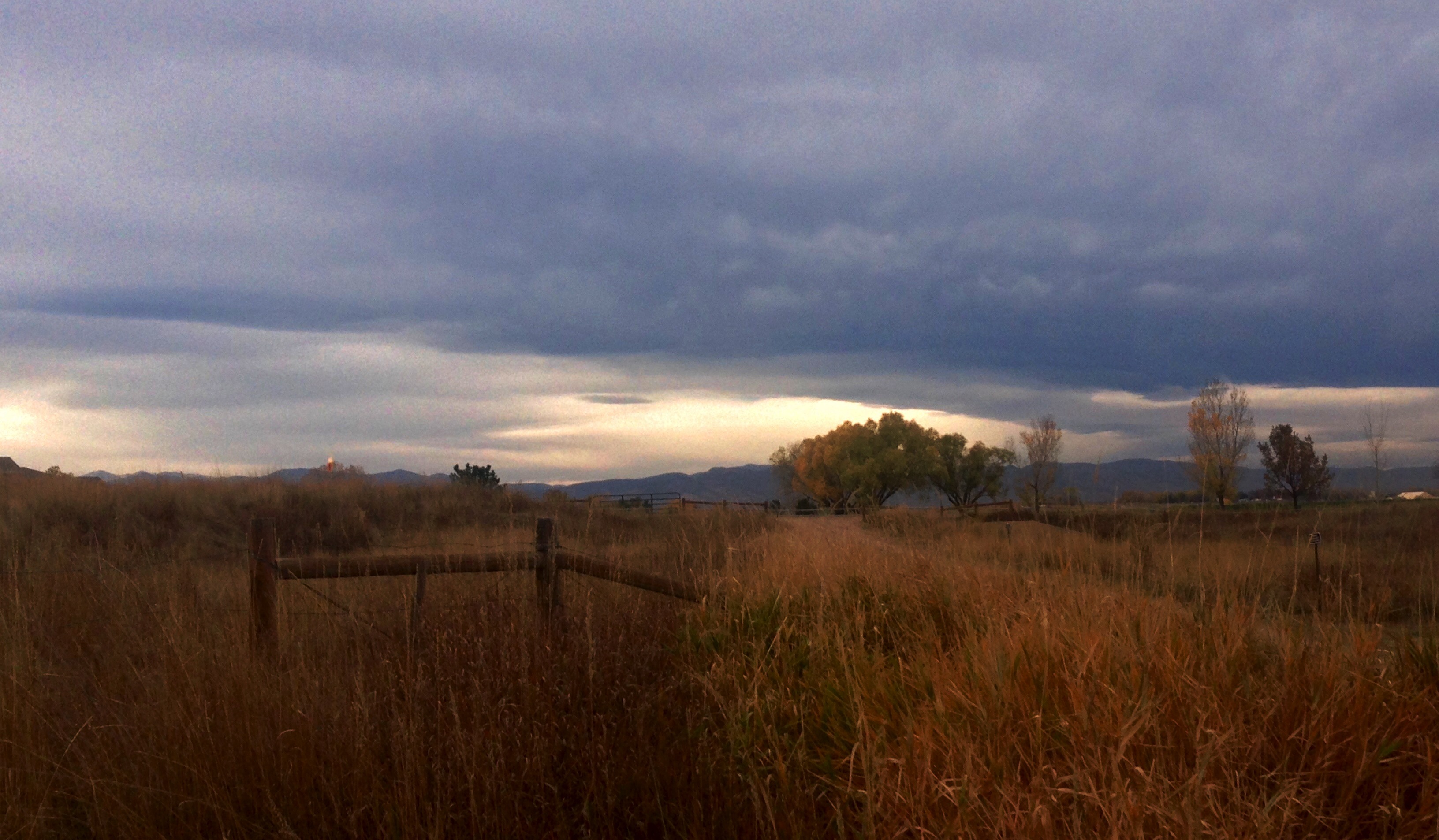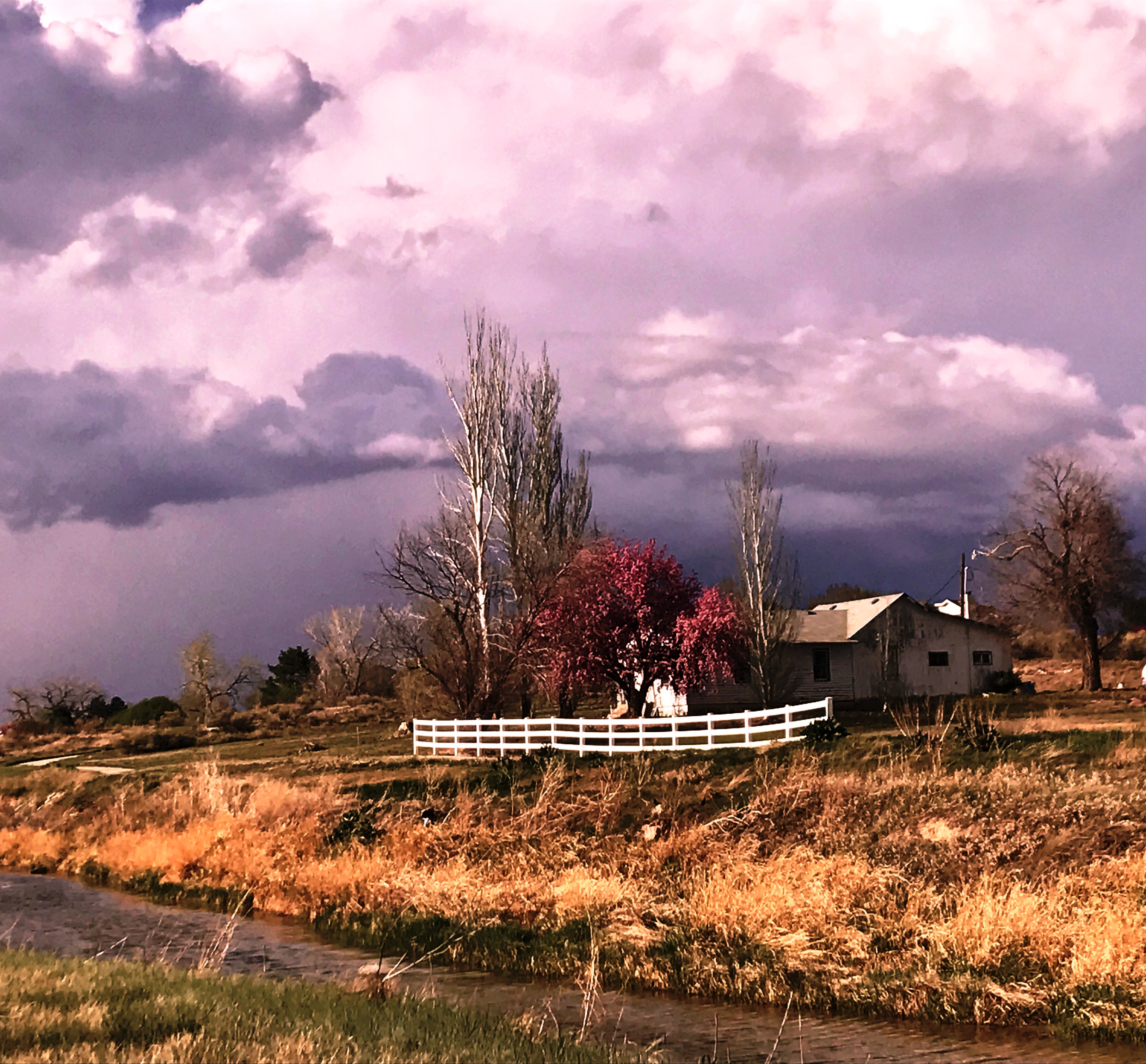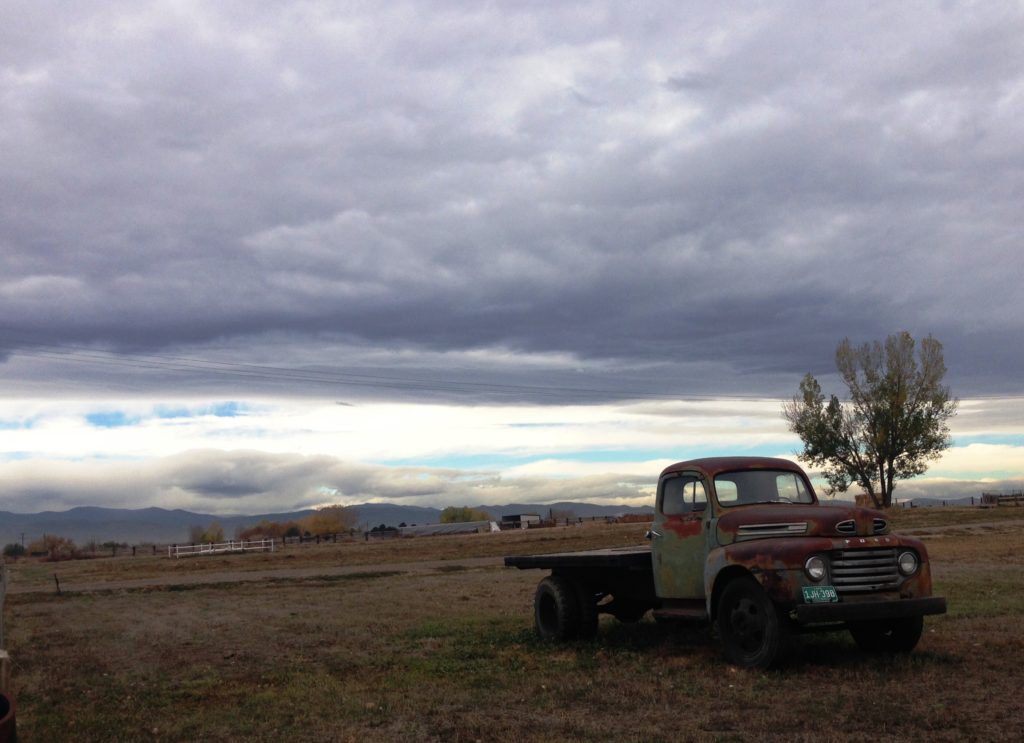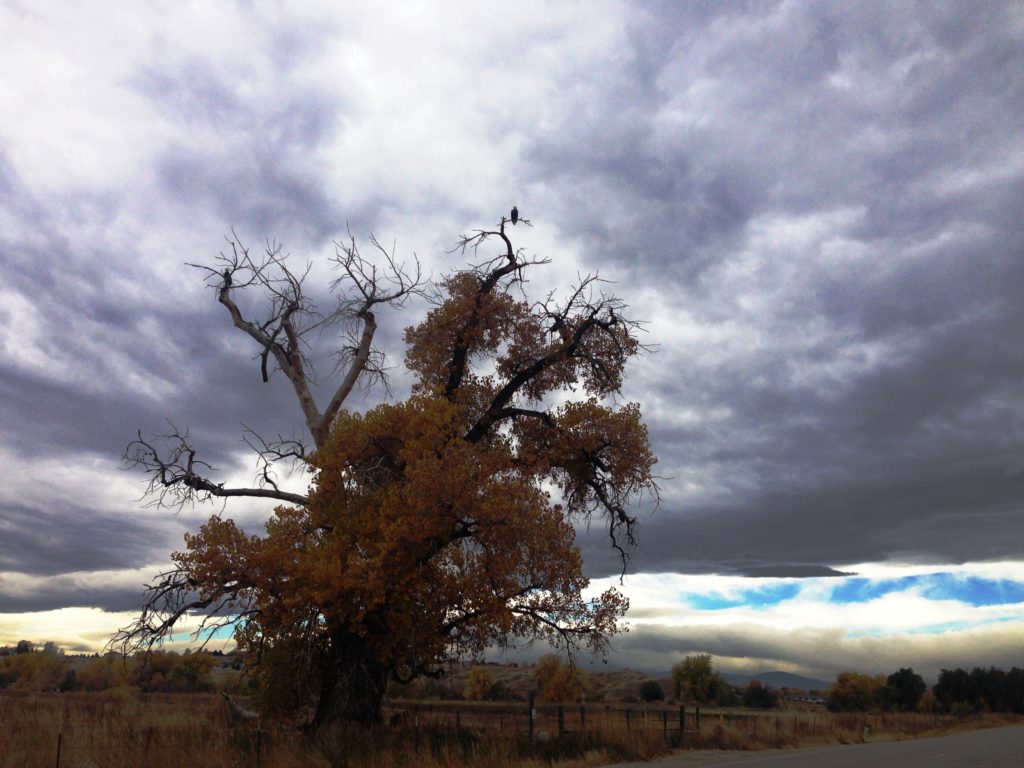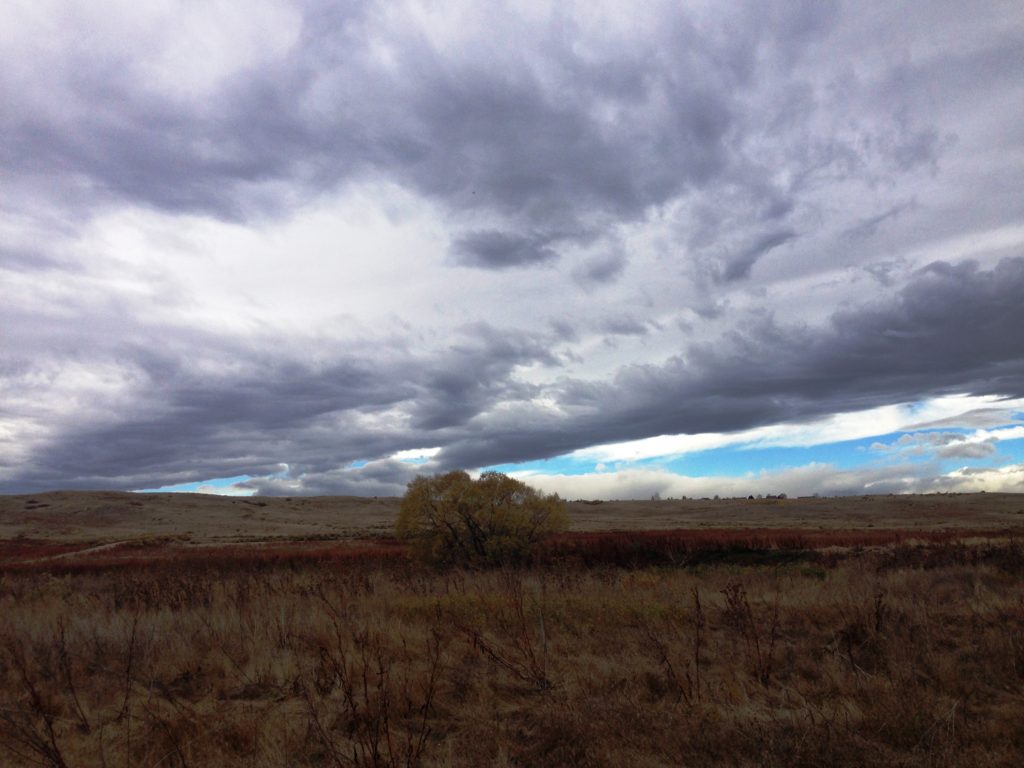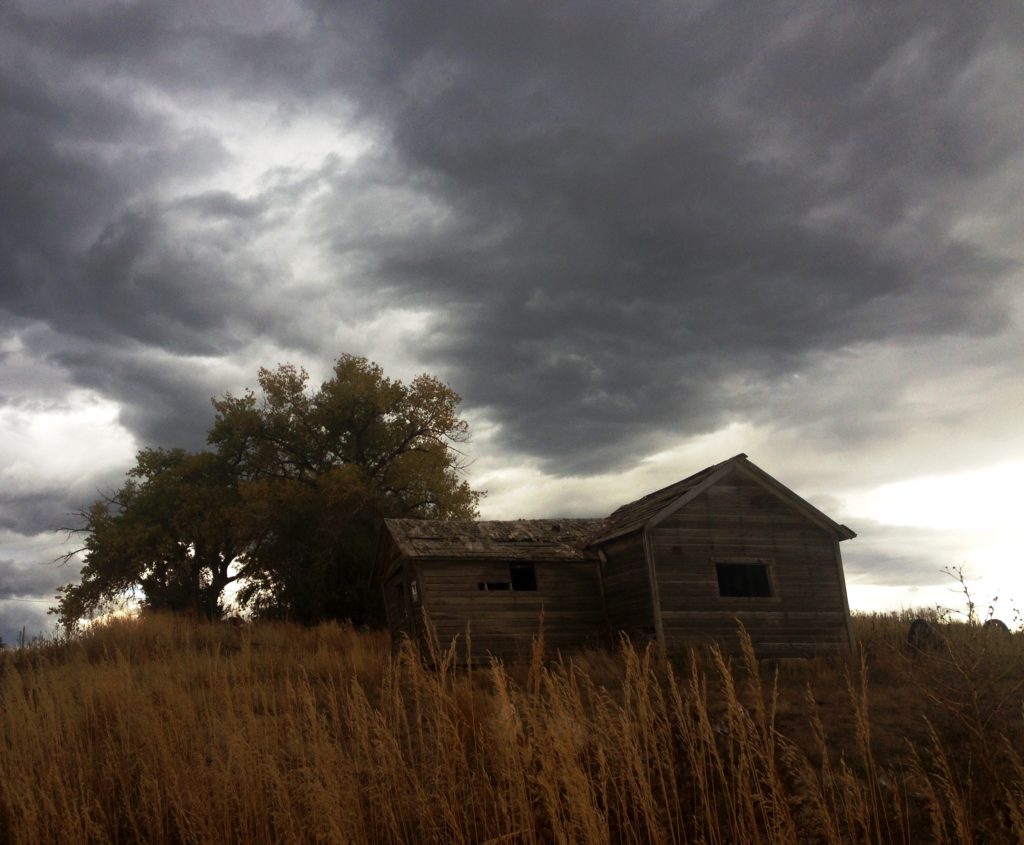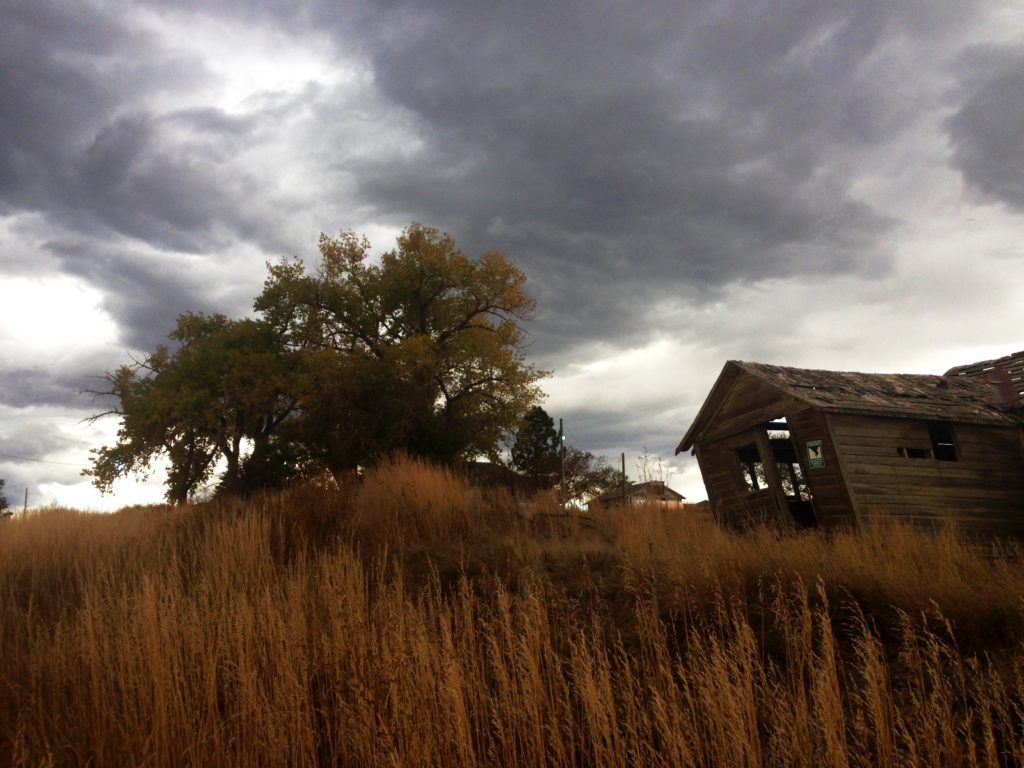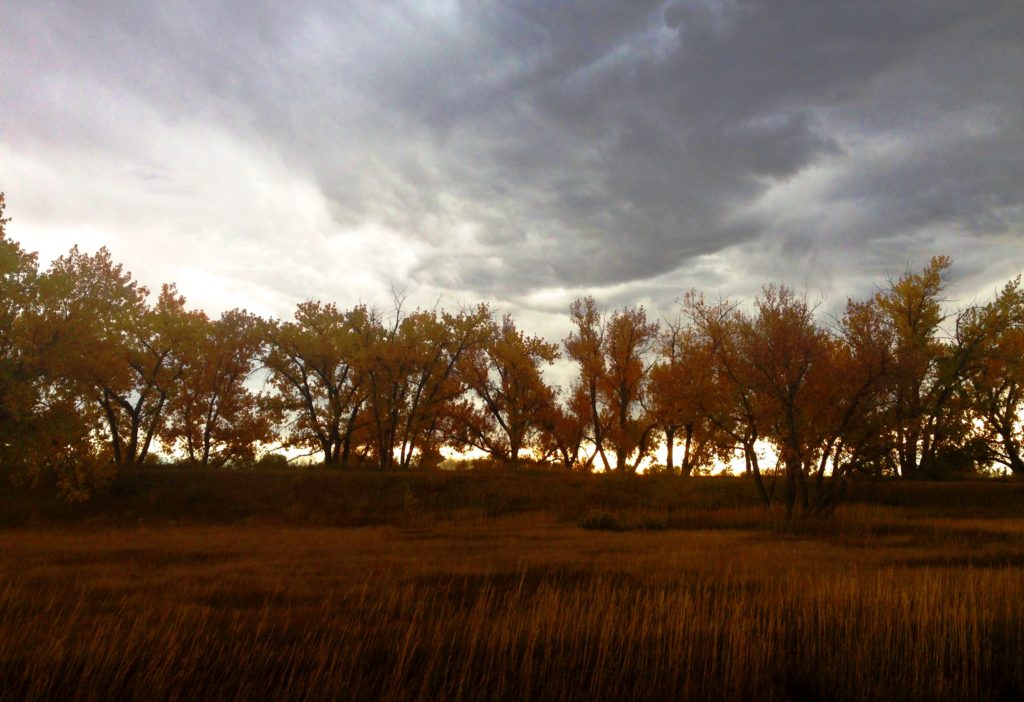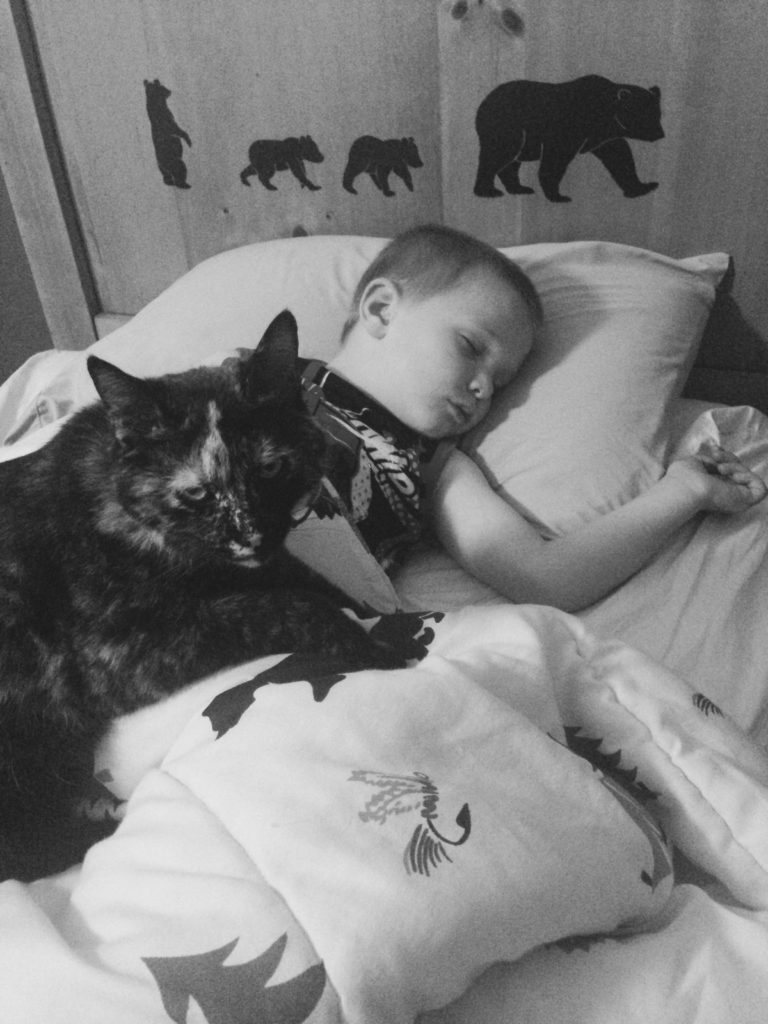Between the morning and the afternoon storm,
I drove the lunch and the dog out east
through the yet unplanted fields,
where big oil has quietly left its mark.
Cylindrical, tan vessels perch at the corners of farms on top of county roads;
underwritten barrels of the prairie promised to be smaller.
The radio crackles from distant lightning when I arrive,
and just as I exit the car, her age-hushed voice calls from the tiny house; a
well-built, obvious survivor of the tornado that happened nine years ago.
The table where we dine is pressed into a corner of her kitchen. Paint peels
from around the heating vent at her threadlike ankles, warm air pushes into
softened polyester.
There is a clear window overlooking a bird feeder and the darkened sky
beyond; I like to watch the weather too, I assure her. Yes–And the birds—who
flutter around the homemade contraption as we watch, despite the
metronomic bark of the dog in the car.
The silver blue heads of prairie blackbirds twitch their quick necks at the
window; wind stirs the incomplete pattern of chimes on a leaning pergola,
and her words are saved only for things she wants to remember:
her husband and the child buried in the yard,
her children and their children,
the medicine she sips from a straw,
where she keeps the unused plastic bags, and what time her evening
caregiver comes.
The rain starts to fall when I leave. The resigned dog has given up his voice
by then, and his face is pressed against the window;
whisker smears in the condensation.
She is too weak to wave from the clear window, but I can see the bright blue
of her eyes through the rain, smiling at the silly dog
and the moisture gathering on the thrilled taupe of her lawn.
